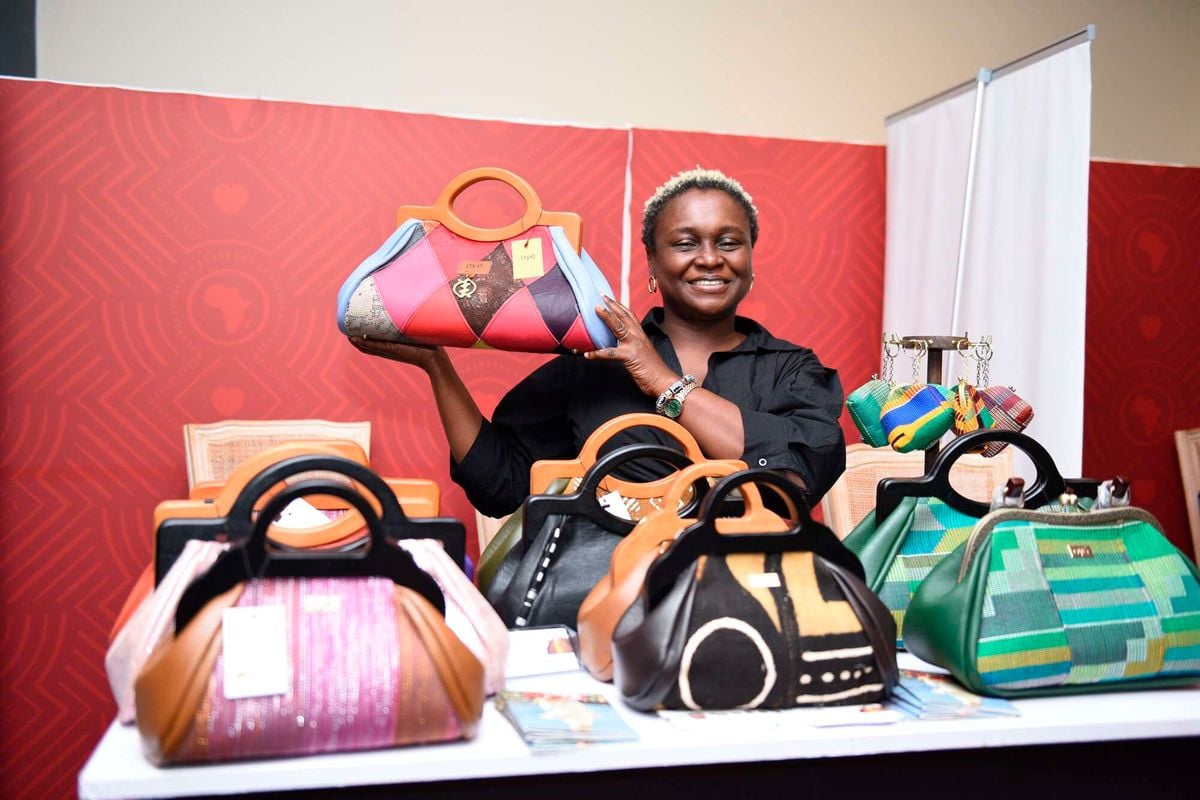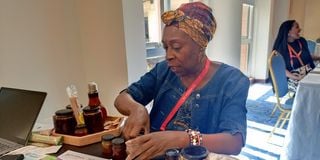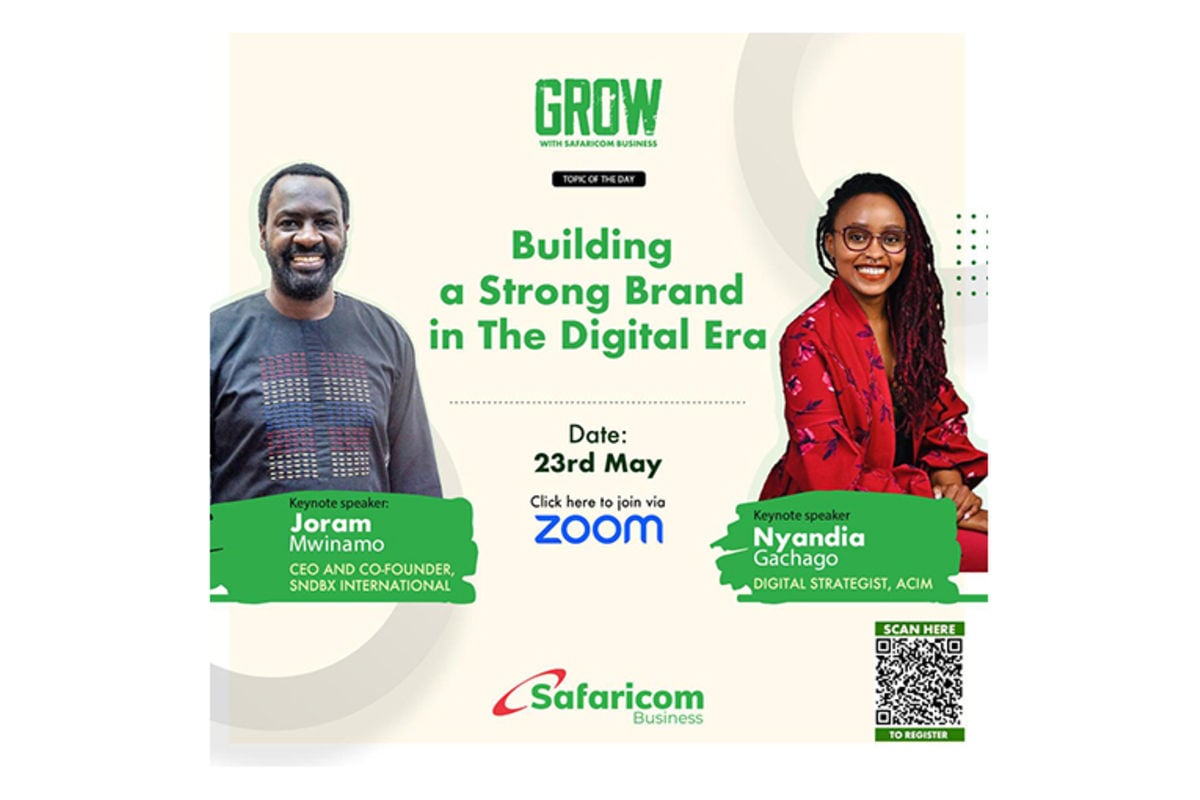
How we broke into international markets: Female entrepreneurs share their secrets

One of the most common gaps in entrepreneurship is gender gap. While many women in Africa, are entrepreneurs, very few of their businesses are likely to attract investment, go global, and scale.
And while access to finance is a big barrier, the major issues that women-led SMEs face are non-financial.
“We spoke to the women founders, and they told us, ‘yes, we need access to finance’. That’s a big thing. But then there is also the non-financial stuff. Like; how do you make sure you have a business continuity plan? How do you make sure that your mental wellness is okay? How do you interact with the different organisations and the government? What about branding, sourcing and keeping employees happy?’” said Elizabeth Wasunna, the Absa Bank Kenya business banking director.
Ms Wasunna says the three things that matter most to women entrepreneurs are access to finance, networks and mentorship, and coaching.
These issues hinder women-led businesses, especially when it comes to accessing emerging markets and attracting investors and, therefore, their companies remain small.
To understand the challenges African women entrepreneurs, face while scaling businesses, Lifestyle spoke to five women who have grown their businesses across borders. They give practical advice on how to get women out of their comfort zones and reach new heights.
Veronicah Gakio, founder Ankole Jewels, makes jewellery from horn, brass, and semi-precious stones. It also produces crotchet bags finished with genuine Kenyan leather. Sells in Kenya, UAE, and the US
“I started my business in November 2019, right before Covid. Though I worked in human resources in Dubai for nine years, I loved unique jewellery. When I came back to Kenya, I worked for a company that was making jewellery which inspired me to start my own company.
I have always wanted to have that piece of jewellery that nobody else has. In my early 20s, I’d buy jewellery and then combine it with others for unique pieces. And that’s precisely what I offer in my brand—custom-made pieces. I’m focused on the unique aspect of my items.
I started by bootstrapping from my savings. The beauty of my business is that if someone gives me a big order, they have to pay 50 percent upfront.
While my company is fairly young, I have clients not only from Kenya but also from the United Arab Emirates, the US and even India. It’s a 50/50 split between retailers and resellers. In my business, the international market does better because that’s where I get most clients.
I feel like foreigners, especially in the US, appreciate more hand-made items and the sentiment of ‘one-person trash is another one treasure’.
What has helped me scale fairly quickly is the power of social media. Most clients visit my Instagram page and order the items, which I courier to them. I do sponsored posts on Instagram and decide which location to focus on. One has to target the right audience with each post. But sometimes, as much as we try, we may get the wrong audience.
The biggest challenge I face, like most of the exporters, is the high airfreight costs. For example, the price of shipping a pair of earrings can be equivalent to their price.
I would tell those wanting to scale not to limit themselves and try to be as unique as possible. Don’t just go for something quick to make.
Do things that stand out. Be unique. It might be expensive to make unique things, but it pays at the end of the day because people identify you. Network as much as possible. Don’t shy away from talking to people, thinking that you’re disturbing them. Sell yourself.
Don’t limit yourself; talk about your brand. Introduce yourself, and what you do, and people will appreciate what you’re doing.”
Anita Kittoe, Oye Bags and Clothing founder: from hobby to empowering local artisans
Anita Kittoe, the creative director and founder of Oye Bags and Clothing in Accra, Ghana.
Photo credit: Pool
Anita Kittoe, the creative director and founder of Oye Bags and Clothing in Accra, Ghana, has transformed her side hobby into a flourishing business over the past eight years. Initially working full-time in banking, Anita crafted tote bags and clothes in her spare time.
“It started as a hobby and then five years into it, I left banking and then I’ve been doing it full-time since,” Anita says.
This transition has enabled her to travel, network, and collaborate with other entrepreneurs globally, including trips to Egypt and Kenya. “We sell in the UK, US, Ghana and Kenya. Our focus from last year is to expand within the continent,” Anita says.
Oye Bags and Clothing is also a platform that supports local artisans and suppliers. “Not only is the business generating income but also creating a livelihood for local artisans, and suppliers who supply raw materials,” she says.
Anita says collaboration with stakeholders has been instrumental in expanding her business and accessing new markets.
“I am a member of SheTrades, Ghana Export Promotion Agency, and Ghana Enterprises Agency. Ghana Trade House was launched in Kenya by GEPA and this has enabled SMEs to access the market,” she says.
Attending international events, and trade fairs and doing pop-up markets have been crucial in Oye’s growth. These events offer networking opportunities and inspiration from like-minded entrepreneurs.
“Meeting others who have faced and overcome similar challenges provides motivation and reinforces the belief that growth and success are attainable,” she says.
Oye Bags and Clothing currently operates two shops in Accra and has stockists in the US and the UK, including locations in Atlanta, New York, and London. The brand also leverages online sales, shipping products worldwide via DHL.
“Social media has been very good to us since many people today don’t like going to shops,” she says.
Anita says financing has been a significant challenge, and she initially relied on her salary, high-interest microfinance loans, and support from family and friends.
“Ghana interest rates are super high—35-40 percent. I just signed off on a loan and the interest rate is almost 40 percent,” Anita who says access to grants has eased her burden, shares.
Anita emphasises the importance of organic growth and patience. Aspiring exporters should develop their products to meet international standards and grow naturally to avoid overextending their capacity. Ensuring product quality and readiness for the global market is also paramount.
“You need to develop your product to a certain level and be confident that your product is ready for the international market. There are all of these regulations out there. You need to check with your local agencies and be sure that your product is safe to go out in the first,” she advises.
Anita notes the difficulties in collecting payments and the complexities of shipping products within Africa compared to markets like the UK and the US. Addressing these issues is crucial for smoother expansion and operational efficiency.
“It’s as simple as ‘how do I get paid? This is a major problem across Africa. It’s easy for someone to send me money from the UK than from here in Kenya. So one has to figure out a way,” she says.
Francesca B. Apeagyei, Nguvu Global co-founder: Empowering women and expanding shea cosmetics across continents
Francesca B. Apeagyei, is co-founder Nguvu Global Limited, a social enterprise based in Accra, Ghana.
Photo credit: Pool
Francesca B. Apeagyei, alongside her sister, co-founded Nguvu Global Limited, a social enterprise based in Accra, Ghana. Specialising in shea cosmetics and natural oils, Nguvu operates a processing centre in northern Ghana, where shea nuts grow wild.
Here, they support 1,500 women from nearby communities who pick and process the shea nuts into butter, which Nguvu Global then buys, processes further with natural oils and fragrances, and exports.
Nguvu Global’s shea cosmetics are available in Melcom, Ghana’s largest supermarket chain, and at the Accra airports, among other local shops. Internationally, they extend their reach to Kenya, Liberia, South Africa, the US, and the UK. This impressive growth in just four years stems from a blend of strategic location, partnerships, and leveraging local resources.
The business idea originated from Francesca’s sister’s research on women in marginalised area development, which highlighted the economic potential of shea butter. Recognising the disparity between resource availability and local poverty, the sisters aimed to create a sustainable and empowering business model.
“She realised that we were sitting on a natural resource that could be catapulted into something large,” says Francesca who shares the company name Nguvu, which means strength in Swahili, symbolises the collective strength of women.
Francesca and her sister have navigated significant challenges, including the Covid-19 pandemic, which led Francesca to pivot from her travel business to focus entirely on shea cosmetics. This period was used to refine product formulations and explore online sales, leading to increased local and international demand.
“The travel business had collapsed, and I was looking for a way to pay the rent. Shea had potential, if we were to put the structures in place in terms of logistics, pricing, packaging, and promotion. I used the lockdown period to test my product on my friends. I would rather test on my friends who won’t sue me than random people,” Francesca says of the formulations she started producing from her kitchen counter.
Their international expansion strategy involved leveraging Francesca’s marketing expertise and taking calculated risks, such as personally travelling to new markets like South Africa and Kenya to establish connections and understand market needs. Collaborations with the Ghana Export Promotion Authority also played a crucial role in entering new markets, such as through trade shows and establishing trade houses.
Being a female entrepreneur in Ghana presented additional challenges, particularly in accessing finance. Francesca often found that her proposals were not taken seriously by male-dominated financial institutions. To overcome this, she strategically involved a male financial coach in meetings to secure necessary funding.
“They (male executives) look at you like a young girl trying to do business. So they toss you about. Or they are hearing, but they are not listening to you. I decided to go to meetings with a male financial coach because he would speak the mathematics and shake hands and I’ll just be quiet and get my money. My work would continue. I found that to be a smart way of getting what I want without having to fight all the time,” she says.
Logistical challenges, particularly high shipping costs and long transit times within Africa have been significant obstacles.
“Business revolves around time. The customers are impatient. If the product is low on stock in Kenya and I need to quickly send stock, it means that by default, if I use flight, I’m going to lose money. That customer is not going to wait 30 to 90 days for shipping. That customer is quickly going to move on to a product that’s available and ready on the shelf. It’s a tough business call,” she says.
By partnering with government institutions like the Ghana Shippers Authority and GEPA, Nguvu Global has been able to mitigate some of these costs and streamline its shipping processes.
Looking ahead, Nguvu Global aims to solidify its presence in five key African markets—Kenya, South Africa, Egypt, Morocco, and either Uganda or Rwanda—alongside expanding into European and Middle Eastern markets such as Germany and Dubai. The ultimate goal is to position Nguvu Global as a leading African brand in the global cosmetics industry, comparable to European luxury brands.
Francesca emphasises the importance of travel and firsthand market exploration. She advocates for personally visiting new markets to gain practical insights, build connections, and understand consumer preferences.
Adowa Koren Dejean-Lynch, CEO BEEyond Honey Collection: Innovating food security and honey production in Rwanda
New Content Item (1)
Photo credit: Pool
Adowa Koren Dejean-Lynch is an African British Caribbean entrepreneur based in Kigali, Rwanda. Her journey to Rwanda began two years ago with a mission to address food insecurity and climate change through innovative agricultural solutions.
Her first product, Microgreens, is a crop that grows in just 14 days using minimal water and no fertilisers, making it ideal for urban settings and small spaces like patios.
A year into her venture, Adowa expanded her focus to pollination, recognising the critical role bees play in crop production. She noticed the discrepancy in honey production between countries like Ethiopia and Rwanda and sought to create a premium honey product that could compete on an international scale. BEEyond Honey Collection blends honey with spices, herbs, and alcohol, creating a unique product range aimed at wellness and premium markets.
“I wanted to produce a premium brand coming out of Africa for the International market,” Adowa who draws inspiration from her African and Caribbean heritage says.
Starting in 2022, Adowa faced significant challenges, from cultural and logistical hurdles to financial constraints. Despite knowing no one in Rwanda and relying on support from her family, she stayed focused and driven.
“What keeps me grounded is being focused. You have to be able to wear many hats. You don’t have to be brilliant at your idea, but begin with what you’ve got. Be prepared to learn and listen because as the business grows you will get people who want to bolt your business and give you the support you need,” Adowa says.
BEEyond Honey Collection’s pilot in Rwanda proved successful, leading to plans for expansion into Kenya and beyond. Adowa aims to produce 40,000 units in the first year of full-scale production, positioning her product as a premium brand both in Africa and internationally. She is exploring opportunities for manufacturing in Kenya and has received interest from the SheTrades Initiative for exporting to the UK.
Adowa advises aspiring entrepreneurs to be honest with themselves, stay dedicated, and surround themselves with supportive mentors and peers. She highlights the importance of feedback, adaptability, and maintaining a positive mindset.
“Don’t be afraid to ask for help. As women we’re so good at being the support that we forget how to say, ‘I can’t do this…help me’. I had to learn that. When you go to a new country you’re struggling with culture, traditions, currency, and setting up a home….it’s a lot. Ask for help,” Adowa says.
Lydia Wangari, founder Farmplace, expands agricultural exports and embraces community impact
Lydia Wangari says her company specialises in exporting avocados, mangoes, and macadamia nuts. Recently, it has ventured into value-added products such as macadamia and crude avocado oil.
Lydia’s passion for agriculture stems from her upbringing in a family of coffee farmers in Kiambu, Kenya.
“We started the business initially with my father. I come from a family of coffee farmers and from where I come from there’s a lot of avocados,” says Lydia.
Inspired by the high demand and prices for avocados in the US, where she worked in the nursing industry, Lydia decided to harness the potential of Kenya’s rich agricultural landscape.
“Food is something that you can’t live without and I mean, avocado is healthy, right? I have a passion for healthy eating. There’s a lot of need for avocado in the world. People use avocados for a lot of things—for food, hair products, oil. Avocado oil is a very premium oil,” she says.
Since its inception, Farmplace has expanded its market reach to the Middle East, the Far East, and Europe, exporting to countries like Italy and Germany. Plans are underway to penetrate the US market. Lydia attributes their success to attending trade fairs, understanding customer needs, and securing necessary certifications for the European market. “You have to attend trade fairs. There’s a lot of investment in marketing. You have to go outside there, listen to clients, and know their needs. You know, there’s some trust when a customer puts a face to the person. And also, it’s about, do you know what you’re selling? Why are you it?” poses Lydia.
Lydia candidly discusses the challenges faced in the export business, including ensuring product quality and navigating complex payment terms. Initial financing came from her savings, which was later supplemented by support from Absa Bank. The company also benefits from upfront payments by customers, easing financial pressures.
“Financing is very crucial in exports. It’s extremely, extremely expensive…I won’t lie. But the returns are good.”
To ensure high-quality produce, Lydia emphasises the importance of groundwork and education. She works closely with small-scale farmers, particularly women, providing them with the necessary knowledge and resources to produce export-quality fruits.
“Avocado has a lot of pests. If you don’t know, you can pack a lot of rejects. And then your customer sends you a report of what your product looks like. There’s a lot of education and groundwork to be done. I engage myself with small-scale farmers, mostly women. Understanding what it is they do, how it’s done, and identifying a group of farmers to work with. It’s not easy.
I’ve gone even for a whole year not exporting, just gaining information. My father used to do the groundwork but after he passed on three years ago, I had to get out from desktop research and get the information from the ground. I had to pause, go around, learning from people who’ve done it. Some will share, some will not. There’s also pricing, which is difficult. You need to ask somebody to hold your hand. And I can tell you for free, my banker tries to help me a lot.”
Diversification and Future Goals
Recognising the need for diversification, Farmplace Limited has started producing macadamia and avocado oil, which has a high demand locally and internationally. This move helps stabilise the company’s income streams and fills gaps in the export market.
“New customers sometimes ask why should I trust you with my money? I use Absa to reach payment terms—we work on a bank-to-bank transaction. Whether the customer’s bank and my bank are the intermediaries. I release the documents to my bank, then their bank releases the money. But remember, some of our banks are not in their countries. That’s a major challenge that I am yet to unlock. That’s why I’ve diversified to oil. Because of the beauty with oil, I can also sell locally at a good price,” she says.
Lydia’s future goals for the company include expanding production capacity, entering new international markets, and seeing Farmplace products on the shelves of major chain stores globally. She is also deeply committed to empowering women in her community, believing that supporting women can lead to broader community development.
“Groundwork. Networking. Financing,” Lydia says is the key to hacking other markets. The company currently employs four permanent staff and outsources casuals according to their needs.
Lydia stresses the importance of having a clear purpose, investing in information, building strong relationships with banks and customers, and leveraging bank support. Attending trade fairs and seeking guidance from established exporters are also crucial steps. Hiring credible consultants can provide professional insights and aid in navigating the complex export landscape.
“You need information, even more than money. You need to know the prices. What’s the traceability of your fruits? You need to trace in case you get a quality report from your customer. You just don’t pick fruit from anywhere. Not all fruits are export quality.
You need to know the licences required and the government bodies involved. To navigate, you can hire a consultant. Walk to the packhouses, and see what’s done from A to Z,” she advises.
Lydia’s vision is to create a sustainable business that not only thrives in the global market but also uplifts local communities. “I want to see our products on the shelves of major chain stores across the world,” she says.






